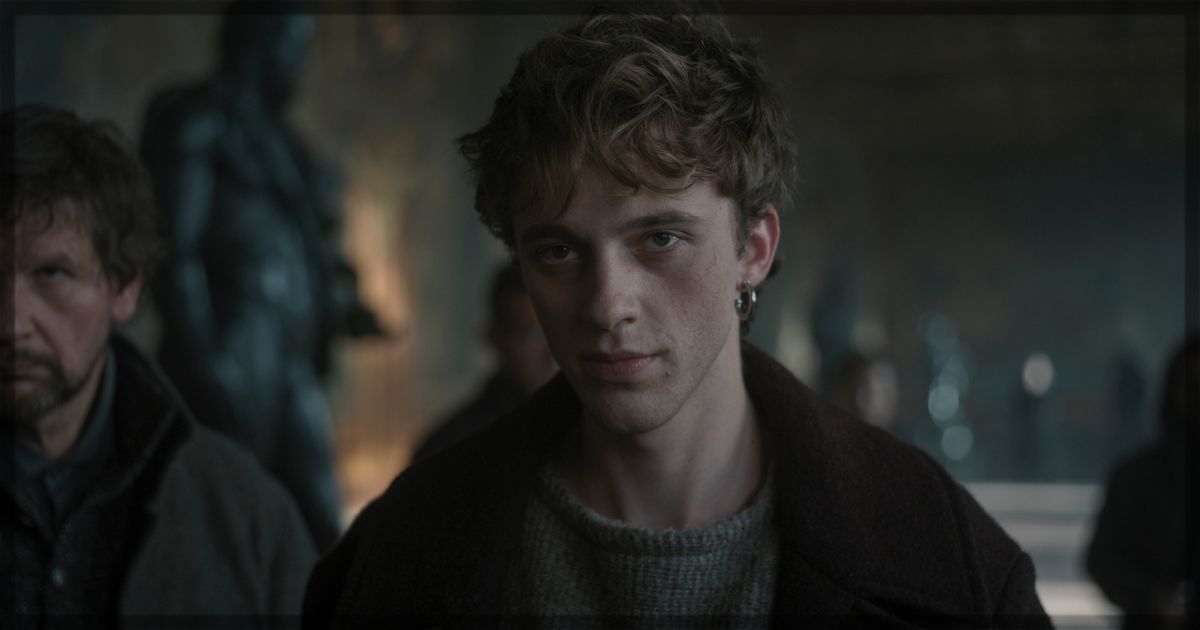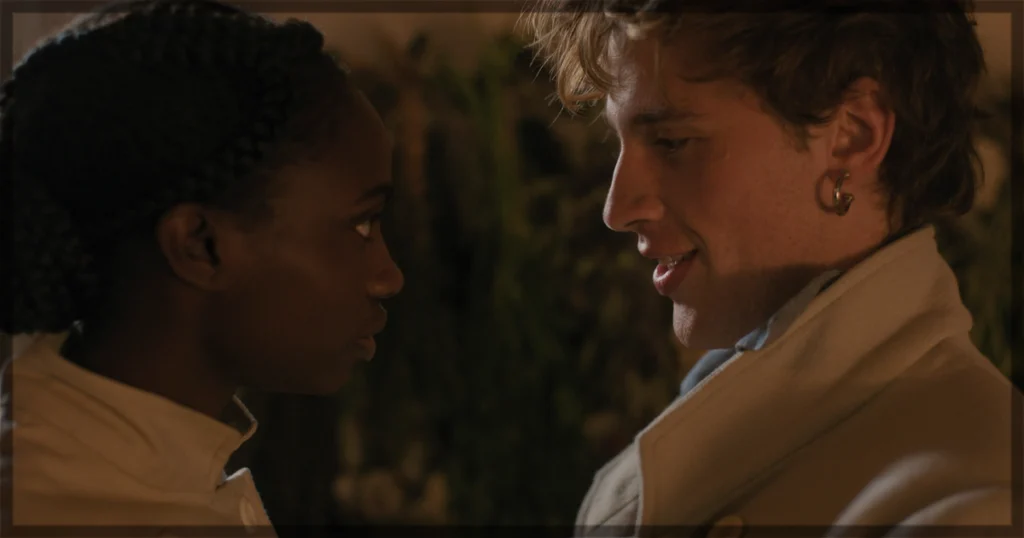On the one hand, this is the weakest episode yet of Carême, full of characterisations that are regrettable cliche. On the other, director Matias Boucard, cinematographer Julio Ramón Ribeyro and editor Jean-Baptiste Beaudoin managed to create a mood that makes palpable both the price of power and the cost of having no one you can trust. This more than makes up for the episode’s other weaknesses.
The royalists are on the march, killing soldiers loyal to Napoleon, meaning that only one thing can restore peace to France: convincing Louis XVIII (Sharif Andoura), the main contender since the guillotining of his oldest brother, to renounce his claim to the throne. He lives in exile in Warsaw on charity, with an alcoholic lesbian wife (Lolita Chamma) and a sullen teenage niece (Louise Labèque). So a road trip organised by Talleyrand (Jérémie Renier) for a chat in person is necessary. Talleyrand would go himself, if only he didn’t have a bad foot, dommage. But fortunately he has two people he trusts implicitly, his wife Catherine (Sigrid Bouaziz) and his son Charles (Pablo Cobo), to do his negotiating for him. Catherine trusts Henriette (Lyna Khoudri) implicitly so she comes along too, and Antonin (Benjamin Voisin) is sent along as the present, with trunks fully of carefully preserved foods to make Louis, a famous gourmand, grateful and therefore willing to give up the crown.
There are some obvious flaws in the negotiating tactics here, but the long journey by horse-drawn carriage across Europe in winter goes largely to plan. However on arrival there are some serious setbacks, not least that Louis’ miserable kitchen has supplies of sausages, potatoes and almost nothing else. Antonin rolls up his sleeves and asks Catherine and Charles to help “for France” even though neither of them have held a knife before in their lives. But they all get to work and their creations lead to a scene which would have been much more powerful without its parallels to “Ratatouille,” not that there’s anything wrong with that. The problem is that everybody underestimates Henriette, even Catherine – who hadn’t previously realised that her bestie had a boyfriend, and whose only comment on the subject is that she won’t sanction a pregnancy. But when Antonin finally realises everything Henriette has been up to, with an explanation that is another grim cliché, Antonin wraps her in an embrace and makes it clear he’ll stand by her.
This stubborn loyalty is Bailly’s (Vincent Schmitt) favourite thing about his son, which he says directly in a brief prison visit that causes Antonin to finally, finally realise just how much trouble he’s in himself. Bailly tries to tell Antonin to let him go, that his time is better spent doing what’s important in life: “invent, create, cook, travel, make love.” While Antonin agrees on the importance of these things he won’t do them without him. And while Talleyrand and even the repellent Fouché (Micha Lescot) are manipulative scoundrels, they are also (to an extent) men of their word, except of course not everything in France is under their control. The scene where Fouché reacts to a mistake by shooting one of his own men could have been done without. It’s all been seen before.
But what is new is the depiction of Antonin’s kindness. He takes care of people, and not just through his cooking, which causes them to open up and trust him with their secrets, like ducklings following their mama. The scene with Antonin and Charles in the Polish street market is both a clever piece of staging but also a briskly efficient depiction of how a friendship is built. More importantly, the later scene of Louis and Antonin in the decrepit kitchen, lit by a ring of sputtering candles hanging from the ceiling like a halo, has a profoundly unusual intimacy to it. Louis is desperately attempting to hang onto his former glories as best he can (which is not very best) while surrounded by enemies and spies. The handsome chef who’s also an excellent listener is perhaps the first friend he’s found in his adult life.
Antonin’s kindness is here revealed to be thoughtfulness: a close understanding of human nature, and the personalised realisation of what makes someone happy. For some people, that’s making a dish that a long-forgotten nanny used to serve. For others that means ignoring a pretty grim past because of the strength of feelings in the present. That’s just what a good person is supposed to do. Except when was the last time a hero on television acted like this? Carême is not just a historical romp, but a show redefining what the best of masculinity has to offer. Even at its weakest there’s so much to enjoy here.
Carême is now streaming on Wednesdays on Apple TV+.
Learn more about the show, including how to watch, on the official site for the title.


